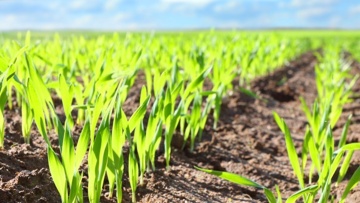Spring Wheat [Soft Wheat (Spring)]
Spring wheat is increasing in popularity as growers see the benefits of the crop as a management tool for rotation, workload, lower input costs and grass weed management.
Early weed control is the key to spring cropping success. BASF provides effective weed control options as grass and broad-leaved weed populations have a negative effect on grain quality, harvest-ability and yield loss.
An effective weed control strategy should also take into account the need to prevent weeds developing resistance.
Leaving weeds uncontrolled will:
- Increase the weed seed burden in the soil affecting other crops in the rotation
- Reduce the efficiency of combining
- Contaminate grain samples with weed seed
- Potentially increase moisture levels in the straw and grain
- Delay harvest,
- Require pre-harvest desiccation
- Increase drying costs
- Impact marketable grain e.g. where high quality is demanded for malting and seed crops
- Increase the risk of resistance development
The following considerations should be taken into account when formulating your weed control action plan:
- Common weed targets in spring cereals and field history
- Broad-leaved weed resistance and any areas of previous poor weed control
- BASF label and EAMU approvals for spring cereals
Common weed targets in spring cereals
By the nature of the time of year, spring cereals may face different weed challenges than winter cereals due to the different germination pattern of weeds. As 80% of black-grass germinates in autumn given the correct moisture, growing spring cereals can be beneficial for black-grass control as the weed can be sprayed off in autumn.
Key germinating weeds to be aware of in spring cereals are:
- Black bindweed
- Black mustard
- Charlock
- Common orache
- Fat hen
- Fool's parsley
- Hedge mustard
- Hemp-nettle
- Knotgrass
- Pale persicaria
- Redshank
- Spring wild-oat
- Volunteer oats


